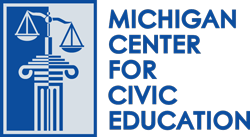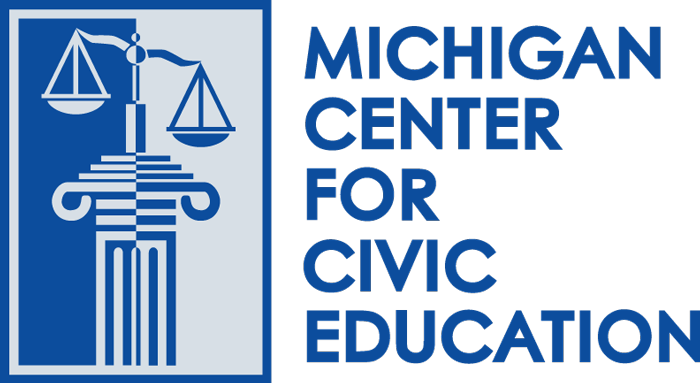Students take a look at two political thinkers who spent a lot of time trying to answer the question, “Why Government?” – Thomas Hobbes and John Locke. The lesson asks students to compare and contrast Hobbes and Locke and to think about how these philosophers influenced those that followed in their footsteps.
Civics Lessons
Why Government?
No Hats in Class
Students learn about the importance of rules and laws; what makes a good law
The Jury System
In this lesson, students identify pros and cons of jury trials and judge-only trials, plus develop and respond to questions that might help to ensure the selection of a fair and unbiased jury.
Citizen Me
Students learn that they are citizens at many levels of society: home, school, city, state, and nation! Students create a graphic organizer that diagrams rights and responsibilities at these different levels of citizenship. They also learn the sources of their rights and responsibilities at each level.
Civil Conversation on the 14th Amendment
This lesson uses the Civil Conversation strategy to have students take a closer reading of Section 1 of the Amendment
Mindwalk: The Law is Everywhere
Students learn the Importance and Reason for Rules and Laws
Teaching How Citizens Influence Public Policy
Target Grades: 4-6
In this lesson, students use a school policy to define policy, understand that policies change, and recognize what and who influences policy making and changes.
Constitution Day Lesson-6th Amendment
The goal of this activity is to introduce 6th grade students to the 6th Amendment of the US Constitution (guarantee of an impartial jury for criminal defendants). The materials illustrate how the American juror selection process differs from the jury selection process used in ancient times during the Roman Republic.
What is the Judicial Branch?
This lesson exposes students to the judicial branch and the power of judicial review. They read about an actual Supreme Court case, Torcaso v. Watkins, to see how the judicial branch used its power of judicial review to strike down an unconstitutional state law.
Voting in Congress
Students learn what factors members of Congress consider when deciding whether to vote for a bill. These include the powers given to Congress by the Constitution, members’ personal opinions, political party support, and what voters think. During the first day of the lesson, students find out about each of these factors. During the second day, students get to try their hand at weighing the factors by considering hypothetical bills.

